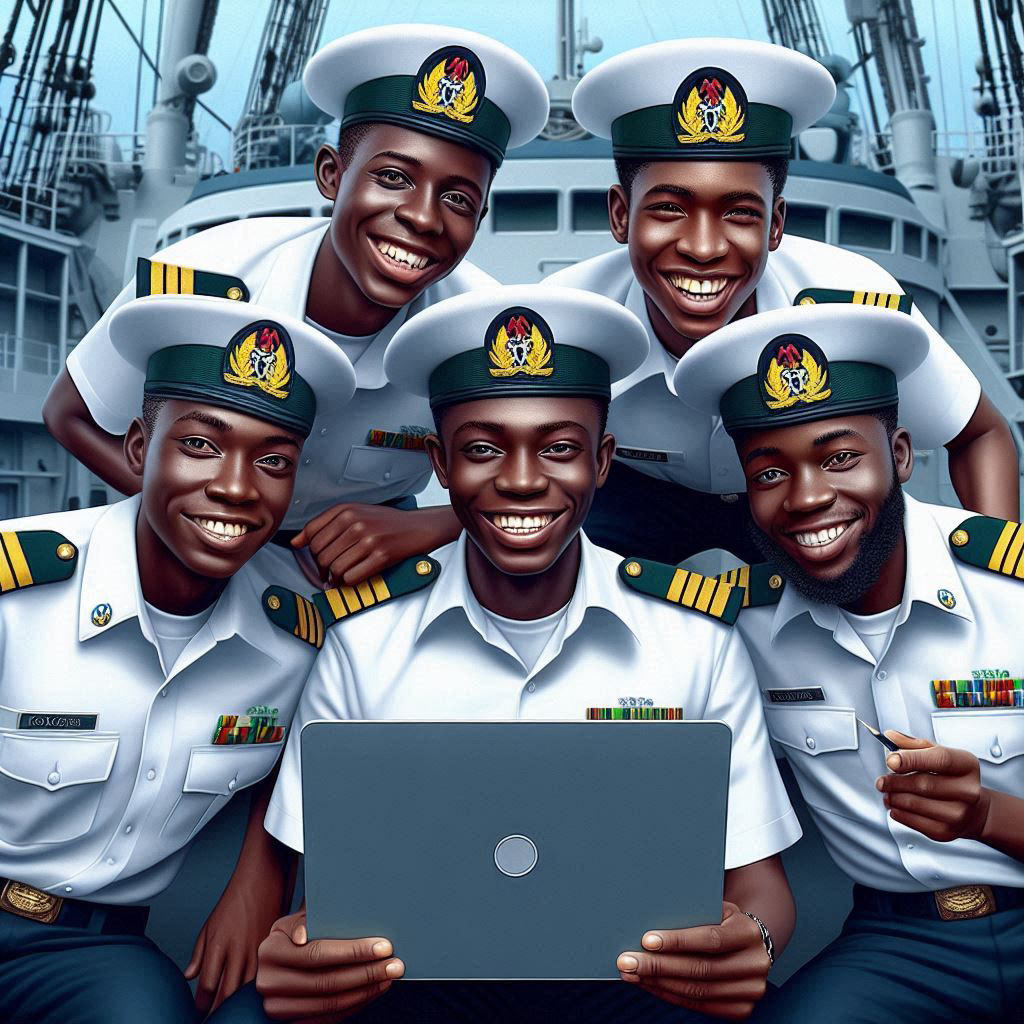**How Leaders Can Foster Diversity in Nigeria's Maritime Industry** *By Engr. Charles David Tanko* *Batch XXV Marine Engineering* *Maritime Academy of Nigeria, Oron*
The maritime industry in Nigeria, despite its rich potential, has remained largely homogeneous for too long. Having spent 18 years at sea as a marine engineer and close to a decade running businesses during my vacation periods, I have had a front-row seat to observe the intricacies of our maritime sector. One glaring observationA is the lack of diversity within the industry. Diversity is not just about ticking boxes for gender or ethnicity; it's about harnessing the full spectrum of talent, perspectives, and experiences that our society offers. To truly elevate the maritime industry, leaders must prioritize diversity and inclusion at every level, starting with cadet training.
The ww: Cadet Training
The maritime industry is only as strong as its foundation, which, in this case, is cadet training. Our leaders have unfortunately not given this crucial aspect the attention it deserves. The Maritime Academy of Nigeria in Oron, where I had the privilege of receiving my training, has produced countless capable seafarers. However, the challenge lies not just in producing more cadets but in ensuring that these cadets come from varied backgrounds. A diverse cadet pool will ensure that our ships, ports, and maritime businesses are manned by individuals who bring different perspectives, innovative ideas, and unique problem-solving skills to the table. Leaders should focus on expanding outreach programs, scholarships, and mentorship opportunities to encourage more women and underrepresented groups to join the industry.
Expanding Outreach and Awareness
One way to make the maritime industry more diverse is by increasing outreach efforts to educational institutions across Nigeria. Many young Nigerians are unaware of the opportunities within the maritime sector. By actively engaging with secondary schools, universities, and local communities, leaders can create awareness about the maritime industry's prospects and encourage students from various backgrounds to pursue maritime careers. This includes holding career fairs, workshops, and seminars to showcase the potential of maritime careers.
Strengthening Partnerships with Educational Institutions
Leaders should foster strong partnerships with educational institutions, including universities and technical schools. These partnerships could involve developing specialized maritime courses, offering internships, and providing industry-led training programs. By doing so, leaders can ensure that students receive the necessary skills and knowledge to succeed in the maritime industry. Moreover, these partnerships can serve as a pipeline for recruiting a diverse group of talented individuals into the sector.
Mentorship and Role Models
Mentorship plays a crucial role in career development. Leaders in the maritime industry should establish mentorship programs that connect experienced professionals with aspiring maritime workers, especially those from underrepresented backgrounds. Having role models who have successfully navigated the challenges of the industry can inspire and motivate the next generation of seafarers. As a marine engineer with nearly two decades of experience, I have seen firsthand the impact that mentorship can have on a young cadet's career. A strong support system can help individuals overcome obstacles and achieve their full potential.
Encouraging Gender Diversity
The maritime industry has traditionally been male-dominated, but there is a growing recognition of the need for gender diversity. Leaders should actively work to create an inclusive environment where women feel welcome and valued. This includes implementing policies that address gender biases, providing equal opportunities for career advancement, and ensuring a safe and supportive workplace for all employees. Furthermore, promoting success stories of women in the maritime industry can help challenge stereotypes and inspire more women to pursue careers at sea.
Inclusive Recruitment and Retention Policies
Recruitment practices should be re-evaluated to ensure they are inclusive and free from bias. Leaders should implement diversity targets and track progress in hiring individuals from various backgrounds. Additionally, retention policies should be put in place to support employees throughout their careers. This could include offering training and development opportunities, flexible work arrangements, and a clear path for career advancement. By prioritizing diversity in recruitment and retention, leaders can build a more inclusive and dynamic maritime workforce.
Leveraging Technology and Innovation
The maritime industry is evolving, with technological advancements reshaping how we operate. Leaders should harness the power of technology to attract a diverse range of talents. For example, virtual reality simulations can be used for training, making it more accessible to individuals who may not be able to attend traditional training programs. Online platforms can also be utilized to connect aspiring maritime professionals with mentors and job opportunities. By embracing innovation, leaders can create a more inclusive and forward-thinking industry.
Conclusion
The maritime industry in Nigeria holds immense potential, but it can only be fully realized if we embrace diversity and inclusion. As someone who has dedicated their life to this industry, I believe it is the responsibility of our leaders to prioritize cadet training and create opportunities for individuals from all walks of life. By expanding outreach, fostering partnerships, encouraging mentorship, promoting gender diversity, and leveraging technology, we can build a maritime industry that reflects the rich diversity of our nation. Let us work together to create a future where everyone has a seat at the table and the opportunity to contribute to the growth and success of Nigeria's maritime sector.
---
**Engr. Charles David Tanko**
*Marine Engineer and Maritime Advocate*
*Batch XXV Marine Engineering*
*Maritime Academy of Nigeria, Oron*



This is quite very impressive.
ReplyDeleteInteresting
ReplyDeleteThis is exactly what the Maritime industry need. Thanks for sharing.
ReplyDeleteAbsolutely magnificent
ReplyDelete